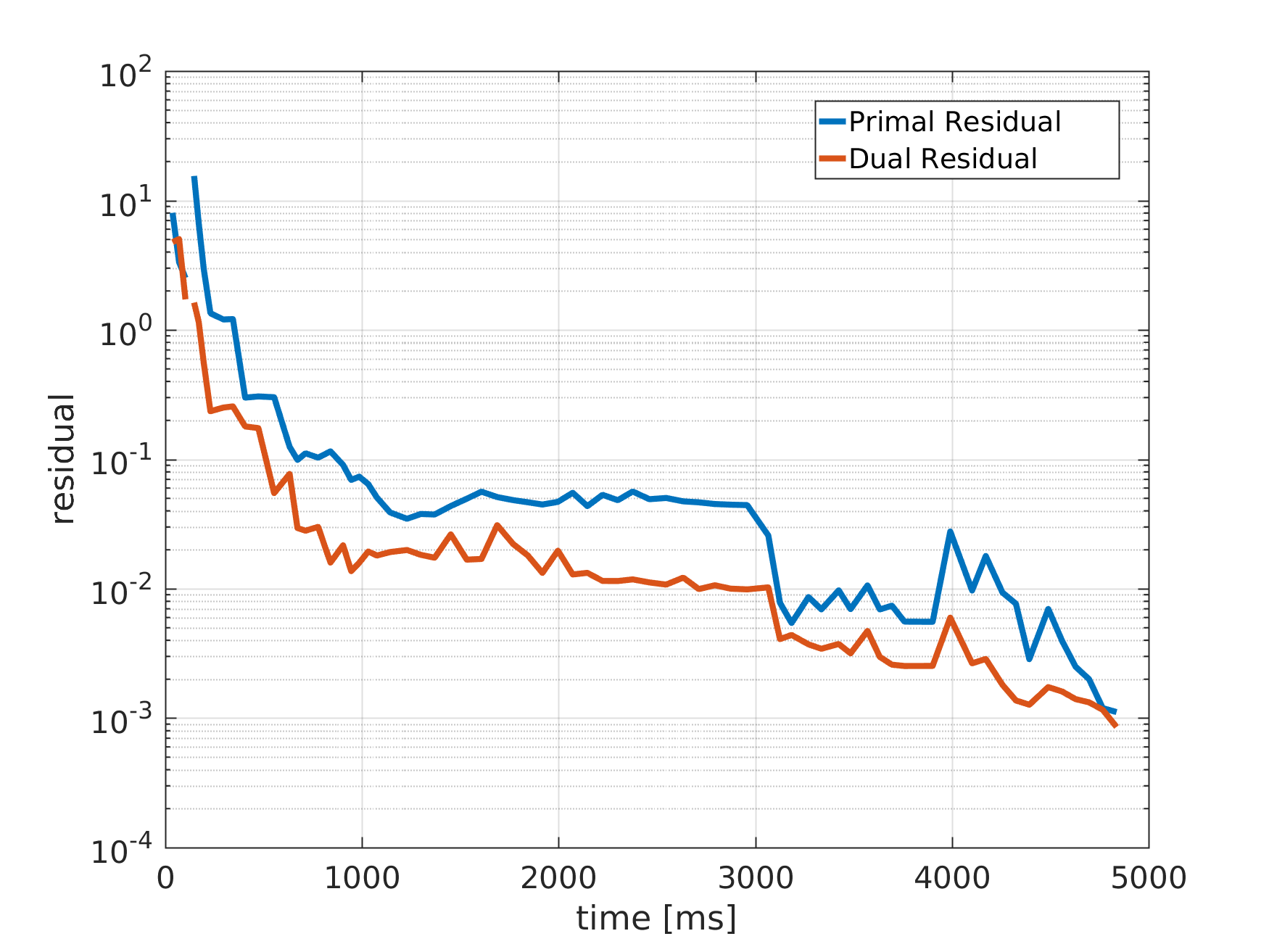 |
SuperSCS
1.3.2
|
 |
SuperSCS
1.3.2
|
In SuperSCS, we may activate the logging of progress information using the property do_record_progress in ScsSettings.
In that case, the Info object that is updated using scs contains the following information:
progress_iter an array of the iterations when the progress data were recorded. It is possible that progress data are stored with a stride.progress_time an array of timestamps (starting at 0) when the progress data were recordedprogress_norm_fpr the values of the fixed-point residual at every iteration.progress_respri the recoded primal residualsprogress_resdual the recorded dual residualsprogress_relgap an array of the recoded values of the relative gapprogress_pcost an array of the recoded values of the primal costprogress_dcost an array of the recoded values of the dual costprogress_ls the number of line-search iterations at each iteration of the algorithmprogress_mode the type of step that was taken at every iteration; -1 corresponds to a nominal step, 0 is for a K0 step and 1 and 2 are for K1 and K2 steps respectively.Note that the above arrays have length equal to the number of iterations.
Example:
Similarly, we may record progress information in MATLAB when we call scs_direct.m, scs_indirect.m or scs.m.
All we have to do is to set do_record_progress to 1.
This is the info structure we get when we run tests/matlab/cone_test.m:
Likewise, when calling SuperSCS via CVX, set do_record_progress to 1 and dumpfile to a destination MAT file where the output is to be stored.
CVX cannot return info as an argument, but it can dump all details in a MAT file.
This contains:
data: the sparse matrix A and the vectors b and c of the problemK: The coneoutput: What the solver prints while runningpars: The parameters that we passed to the solverxx, yy and ss: The (x,y,s)-solutioninfo: The info structure containing the progress information.Here is a complete example:
We may then load the file pca.mat and plot the results

 1.8.6
1.8.6